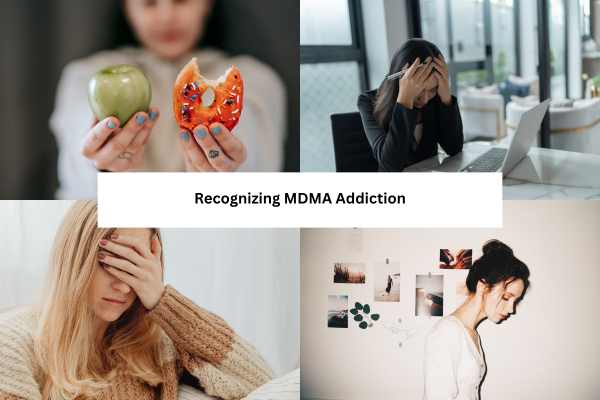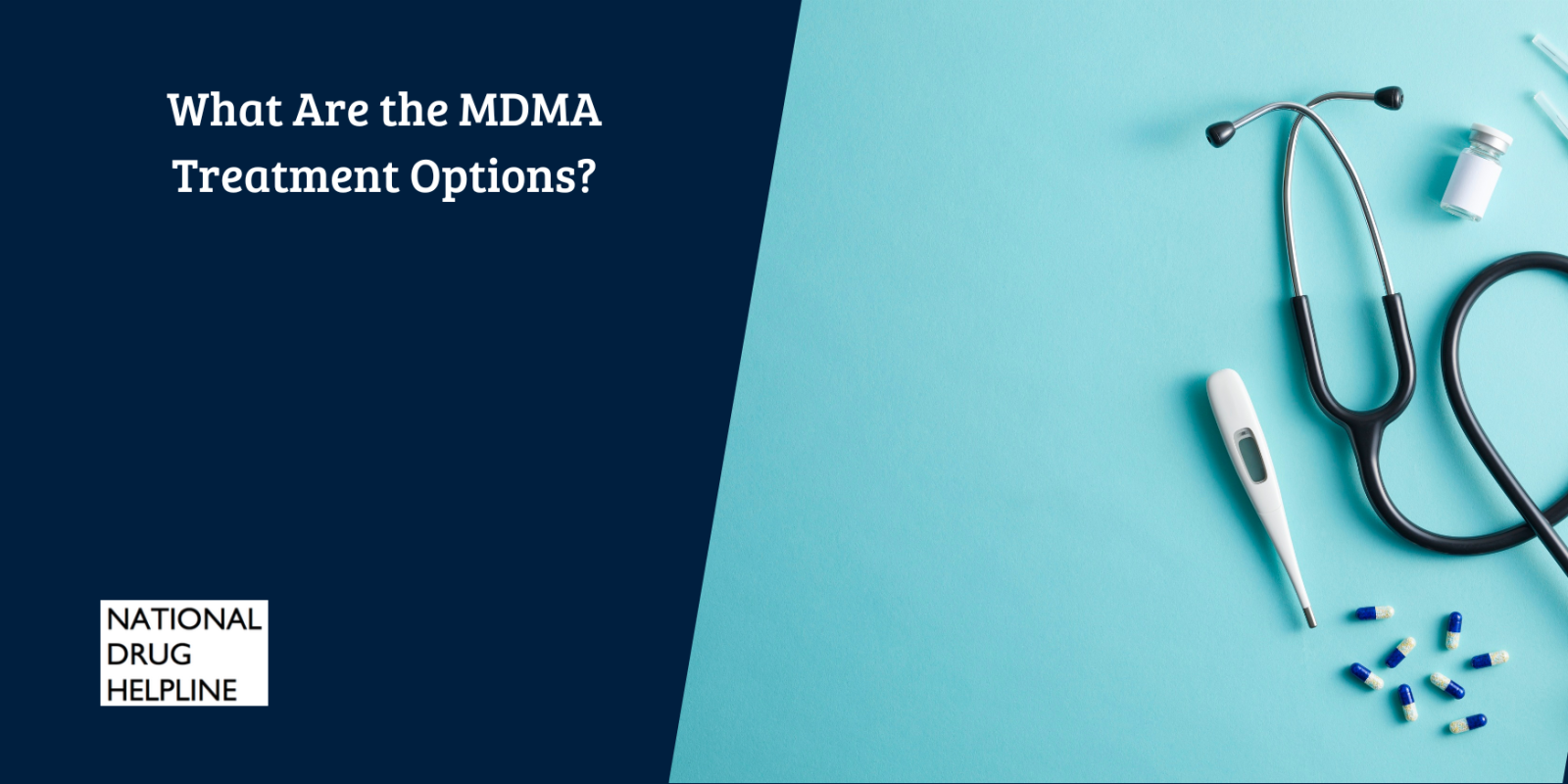MDMA stands for 3,4-methylenedioxymethamphetamine, which is a synthetic psychoactive drug. It is well known for its stimulating and hallucinogenic effects. Also known commonly as ecstasy or molly, MDMA works by increasing the levels of serotonin, dopamine, and norepinephrine in the brain. These are chemicals linked to mood, pleasure, and energy.
Some researchers have explored MDMA-assisted therapy for mental health disorders such as PTSD. [1] However, recreational use remains illegal and is potentially dangerous. This is due to its unpredictable effects on the brain and heart.
MDMA Effects on the Heart
The effects of MDMA on the cardiovascular system can be quite intense. It can increase both heart rate and blood pressure. This can cause arrhythmias, chest pain, and heart attack. These effects may occur especially in those with underlying heart conditions. Use of MDMA for prolonged periods may also lead to cardiomyopathy, which is weakening of the heart muscle. It may even lead to stroke secondary to dehydration and overheating during use.
A 2023 report by European Society of Cardiology has revealed that recent recreational drug use, including MDMA may triple the risk of serious cardiovascular events in people who have pre-existing heart disease. [2] Exposure to MDMA for chronic periods have also been linked to elevated blood pressure, abnormal heart rhythms, and sudden cardiac death.
Recognizing MDMA Addiction
Although MDMA is often seen as a party drug, using it repeatedly can lead to psychological dependence. Some of the signs of addiction to MDMA are:
- Cravings or compulsive use despite negative consequences
- Fatigue or depression during withdrawal
- Sleep disturbances and anxiety
- Cognitive issues such as poor memory and concentration

Over time, MDMA usage can disrupt the natural balance of serotonin in the brain. This can lead to instability of mood, irritability, and increase in vulnerability to mental health disorders.
MDMA Overdose Treatment
Even a single high dosage of MDMA can or combining MDMA with other substances can lead to overdose. Some symptoms of MDMA overdose are:
- Severe agitation, panic attacks, or hallucinations
- High body temperature (hyperthermia)
- Rapid heartbeat and dangerously high blood pressure
- Seizures or loss of consciousness
Medical attention should be sought immediately for MDMA overdose. Treatment for MDMA overdose is mainly focused on stabilization of vital signs, reduction of hyperthermia, and prevention of complications. Some common steps include:
- Cooling measures using ice packs, IV fluids, or cooling blankets are taken to lower body temperature.
- Benzodiazepines are given to manage agitation and seizures.
- Intravenous hydration with a goal to correct dehydration and electrolyte imbalance.
- Beta-blockers or antihypertensives are administered to lower dangerously high blood pressure.
- Cardiac monitoring is done to detect arrhythmias or myocardial injury.
Observation with hospital admission is often required until the patient’s temperature, heart rhythm, and mental state are all stabilized.
MDMA Treatment for Addiction and Recovery
MDMA addiction is typically treated with a combination of behavioral therapy, medical support, and psychological rehabilitation. Currently there are no medications that have been specifically FDA-approved for MDMA dependence. However, several evidence-based approaches are available such as:
Cognitive Behavioral Therapy (CBT)
CBT can help patients identify and change negative thought patterns and behaviors associated with drug use. This can then equip people dealing with MDMA addiction with coping mechanisms. These can help resist triggers and manage stress without MDMA.
Motivational Interviewing (MI)
Motivational Interviewing (MI) is a counselling approach that encourages patients to find some type of personal motivation for recovery. It is particularly useful for those who may not be able to recognize the extent of their addiction.
Contingency Management
With contingency management, rewards or incentives are provided for drug-free behaviour. This can help reinforce sobriety through positive reinforcement.
Group and Family Therapy
Peer support groups and family counseling can play key roles in preventing relapse. They help establish accountability and repair relationships that have been affected by substance abuse.
Dual Diagnosis Treatment
MDMA use often coexists with mental health disorders such as anxiety, depression, or PTSD. A dual diagnosis can help address both conditions simultaneously and improve chances for long-term recovery.
Inpatient and Outpatient Programs
- Inpatient rehab: This is suitable for people suffering from severe addiction issues or patients with medical complications as they provide 24-hour care and supervision.
- Outpatient rehab: This allows flexibility for people dealing with mild to moderate dependence. They can maintain daily routines while also attending therapy sessions.
Protecting Your Heart During Recovery
MDMA can affect the cardiovascular system. Therefore, proper medical evaluation is essential during recovery. To protect your heart during recovery, healthcare providers may recommend:
- Electrocardiogram (ECG) and echocardiography to assess heart function
- Blood pressure monitoring
- Lifestyle changes, which may include adequate hydration, daily exercise, and heart-healthy nutrition
- Regular follow-up appointments for early detection of relapse or cardiac complications
Patients who are recovering from MDMA use should also avoid stimulants, maintain a balanced diet, and address all mental health symptoms.
When to Seek Help
After MDMA use, some people may experience chest pain, irregular heartbeat, extreme fatigue, or anxiety. If this happens, it is essential to seek medical attention immediately. Prompt medical attention and early intervention can help prevent any life-threatening complications.
A joint effort from addiction specialists, cardiologists, and mental health professionals can help people develop a personalized MDMA treatment plan. Such plans prioritize both heart health and emotional well-being.
Key Takeaway
Researchers exploring MDMA-assisted therapy for mental health also look at the potential risks of recreational MDMA use, particularly to the heart. [3][4] To treat MDMA effectively, a combination of behavioral therapy, medical support, and cardiovascular care is needed. Early diagnosis of MDMA addiction and comprehensive recovery programs can greatly improve long-term health outcomes.
References
| ↑1 | Sessa, Ben. “MDMA and PTSD treatment:“PTSD: from novel pathophysiology to innovative therapeutics”.” Neuroscience letters 649 (2017): 176-180. |
|---|---|
| ↑2, ↑3 | European Society of Cardiology. Recent recreational drug use triples risk of repeat serious cardiovascular event. European Society of Cardiology. |
| ↑4 | Peroutka, Stephen J. “Recreational use of MDMA.” Ecstasy: The clinical, pharmacological and neurotoxicological effects of the drug MDMA. Boston, MA: Springer US, 1990. 53-62. |

